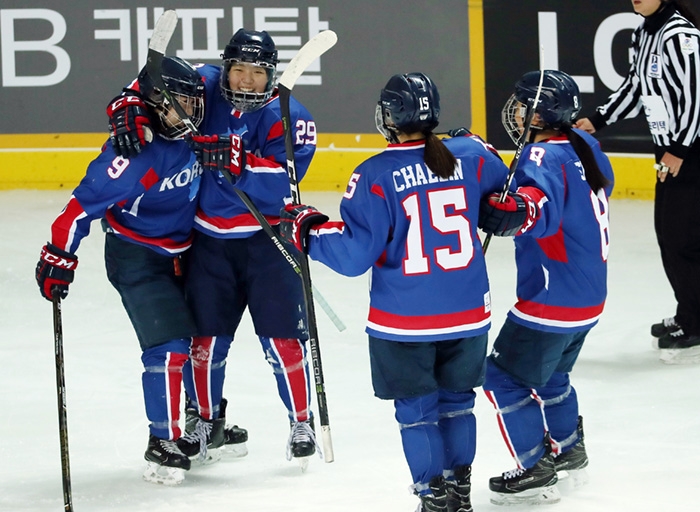
Players on the inter-Korean women's ice hockey team on Feb. 4, 2018, celebrate after scoring a goal in a warm-up match against Sweden.
By Kim Hyelin and Lee Hana
During last year's PyeongChang Winter Olympics, the two Koreas fielded their first unified Olympic teams in select events to send a message of peace to the world. This historic measure helped thaw inter-Korean relations as the Olympiad provided the opportunity to advance reconciliation on the Korean Peninsula.
Thanks in part to the PyeongChang Olympics, both Koreas held meetings between high-level officials in each other's capitals. Three inter-Korean summits followed, as well as the historic first summit between the U.S. and North Korea. Such dialogue helped reduce military tension and resume discussion of bringing peace to the peninsula.
Global sporting events such as the Olympics can thus provide the impetus for participating countries to achieve political breakthroughs.
To this end, the two Koreas are preparing to join forces again at the 2020 Summer Olympics in Tokyo.
Both sides have agreed to form eight unified teams and will hold a meeting on this in Lausanne, Switzerland, on Feb. 15 presided over by the International Olympic Committee (IOC).
The Koreas are also negotiating their bid to co-host the 2032 Summer Olympics, with Seoul and Pyeongyang chosen as the host cities. The IOC has responded favorably to this proposal.
With the second U.S.-North Korea summit scheduled for late this month and a formal declaration of the end of the Korean War set to be on the agenda, the fielding of a unified Korean team in the Tokyo Olympics could serve as the exclamation point for the latest efforts at inter-Korean reconciliation and cooperation.
kimhyelin211@korea.kr